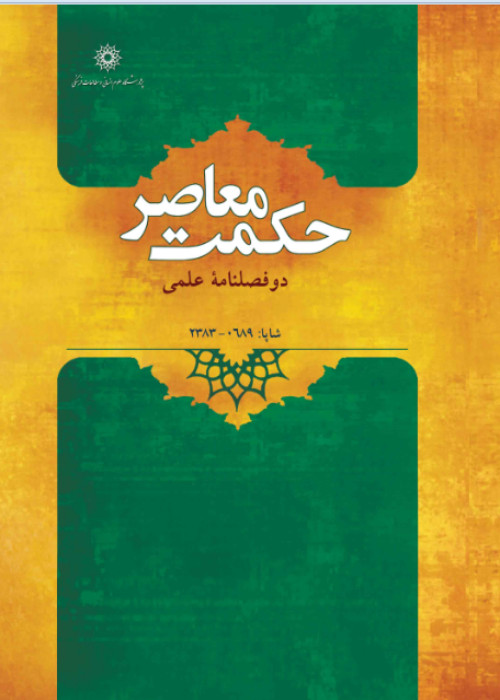The Relationship of Mind and Phenomenal Objects in the Epistemologies of Mulla Sadra and Kant
Author(s):
Abstract:
In Western and Islamic philosophy، one of the most complex and controversial ontological topics has do with the relationship between mind and phenomenal objects، that is the relationship between the form in the mind and the material and objective form. This issue has stirred great confusion for philosophers seeking to explain the relationship of knowledge and the «outside world». In this article we present and compare Kant and Mulla Sadra''s philosophical solutions to this problem. Although in Mulla Sadra''s philosophy، mind and phenomenal objects do not stand on the same ontological levels، however according to the «primacy of existence» (Aṣālat al-wujūd) principle، the two are alongside each other. Knowledge is not separate from ontology and relies on the outside world in its process of perception occurring through the help of the senses، the imagination، reason، and intuition. What occurs between the outside world and the mind is called by Mulla Sadra the construction of quiddity. Quiddity is neither bound to the mind or the outside world; however it is necessary on every ontological level and participates in all the levels of perception. Mulla Sadra can explain the relationship between the intuitions of the mind and the outside world first by positing a soul which creates forms and elements related to perception and secondly، by filling the gap between mind and phenomenal objects by postulating a division of ontological levels. According to Kant، knowledge requires two things: a) observation، which is given to us in space and time and b) the reception of an intelligible upon what has been observed. For the process to occur the phenomenal object and the intelligible must share a similarity. Some intelligibles have no similarity with anything from the experiential level. Kant، in trying to reconcile mind and the phenomenal objects uses the concept of Transcendental Schemata، that is forms produced in time by the imagination. By arguing for a direct reciprocity between the phenomena and the intelligible، Kant is bound to uphold the reciprocity between phenomena and transience.
Keywords:
Language:
Persian
Published:
Journal of Hekmat e Mo'aser, Volume:2 Issue: 4, 2012
Pages:
53 to 78
magiran.com/p1187789
دانلود و مطالعه متن این مقاله با یکی از روشهای زیر امکان پذیر است:
اشتراک شخصی
با عضویت و پرداخت آنلاین حق اشتراک یکساله به مبلغ 1,390,000ريال میتوانید 70 عنوان مطلب دانلود کنید!
اشتراک سازمانی
به کتابخانه دانشگاه یا محل کار خود پیشنهاد کنید تا اشتراک سازمانی این پایگاه را برای دسترسی نامحدود همه کاربران به متن مطالب تهیه نمایند!
توجه!
- حق عضویت دریافتی صرف حمایت از نشریات عضو و نگهداری، تکمیل و توسعه مگیران میشود.
- پرداخت حق اشتراک و دانلود مقالات اجازه بازنشر آن در سایر رسانههای چاپی و دیجیتال را به کاربر نمیدهد.
In order to view content subscription is required
Personal subscription
Subscribe magiran.com for 70 € euros via PayPal and download 70 articles during a year.
Organization subscription
Please contact us to subscribe your university or library for unlimited access!


